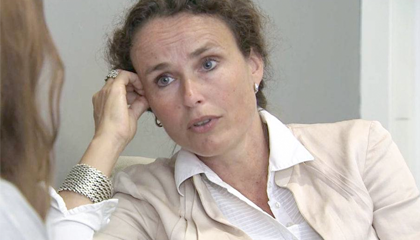E-HEALTH, SELF-MANAGEMENT MEASURE AGAINST (UNNECESSARY) MEDICATION

It is a Wednesday morning when a couple enters my doctor’s office.
They are both in their late seventies, early eighties, and coming for the first time. Madam is the patient. We go through the history and the complaints for which it came: fatigue and general malaise. And then follows the medication list, 14 different pills. Most of this turns out to be unnecessary and can be phased out. Difficult? My experience is not with e-health and self-management.
She: ‘The cardiologist, whom I have seen twice now, has told me to keep taking this high blood pressure medicine at this dose.’
(It is a beta-blocker, which can often cause tiredness and shortness of breath as a side effect).
Me: ‘When exactly is the next appointment with your cardiologist?’
She: ‘I only had high blood pressure, I didn’t have to come back.’
We continued with the list.
She: “The pulmonologist increased the puffs last week because I had become a bit more short of breath lately. He told me to take the puffs twice a day, no less. ”
Me: ‘Oh, and exactly how often do you see the pulmonologist?’
She: “Twice a year for 10 minutes. I have another appointment in five months. ”
NO ONE STOPS MEDICATION
The blood pressure in the consultation room was normal and the heart rate was (too) slow. Oh yes, Ms was still on a low dose of morphine because she had hip surgery 2.5 months ago and the hospital is being assessed on the pain score. So bring along a large amount of prescription painkillers.She received these painkillers in addition to the fixed dose of painkillers she had once received because of minor arthrosis symptoms. No one had ever stopped these pills. In recent years she had been given a stomach protector to prevent stomach bleeding as a result of the pain relief. She had also received sleeping pills from the doctor a long time ago because of sleeping problems.
HELP VIA E-HEALTH, SELF-MANAGEMENT
I sometimes get nauseous from the large amounts of medicines that patients ‘have to’ take on a daily basis. This cannot be good for the body, if they are not a patient then they will, I think. It is difficult as a doctor who has not started the pills to stop the medication. But e-health and self-management can offer a solution here.In such situations, I am more than happy to give my patients access to our portal, which puts them in direct contact with me or one of our doctors via a secure chat. We explain to them how to measure blood pressure. Also lend them a blood pressure monitor, because it is a shame to buy it immediately, if the blood pressure turns out to be normal afterwards. As a doctor, you reduce, stop or phase out the blood pressure medication and the patient will regularly measure blood pressure at home. High value alerts build in security and the chat enables communication.
MOTIVATION TO LIVE HEALTHIER
Time and again I notice that I can taper off blood pressure medications through good lifestyle advice, such as more exercise and less salt. People are very happy with this and it makes them motivated to maintain a healthy lifestyle.
In addition, chronic medication for, for example, pain complaints and sleeping problems is often automatically extended. Here too, e-health can offer a solution and it does. You can then reduce the morphine and you keep in touch about the pain score via chat. If it increases after tapering off, you can titrate to the correct dose. But in many cases it can be stopped altogether.All in all, a lot of complaints disappear like snow in the sun. Withdrawal of the medication leads to a ‘less sick’ patient and costs society less money.